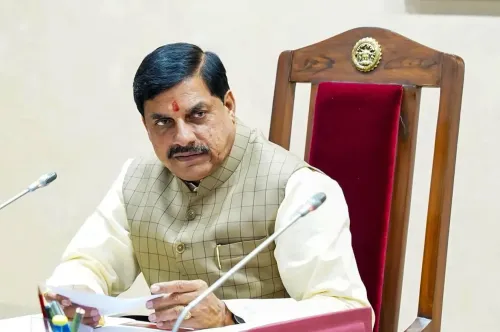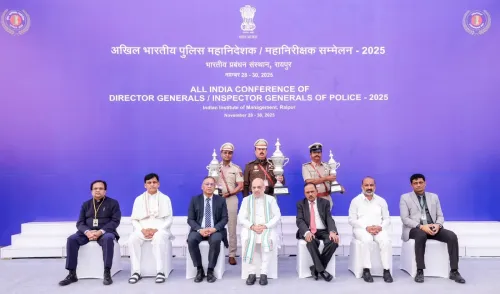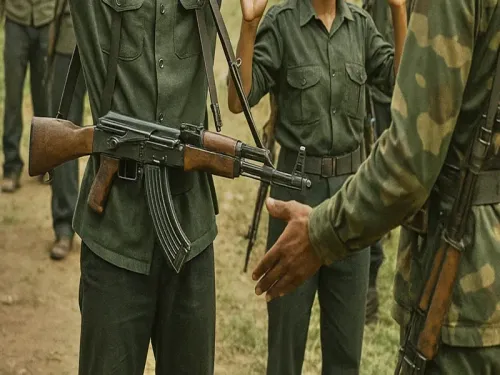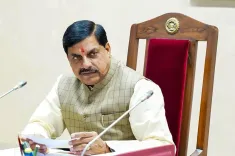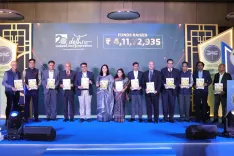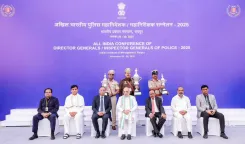How Are Sardar Patel's Ideals Central to India's 2047 Development Vision?
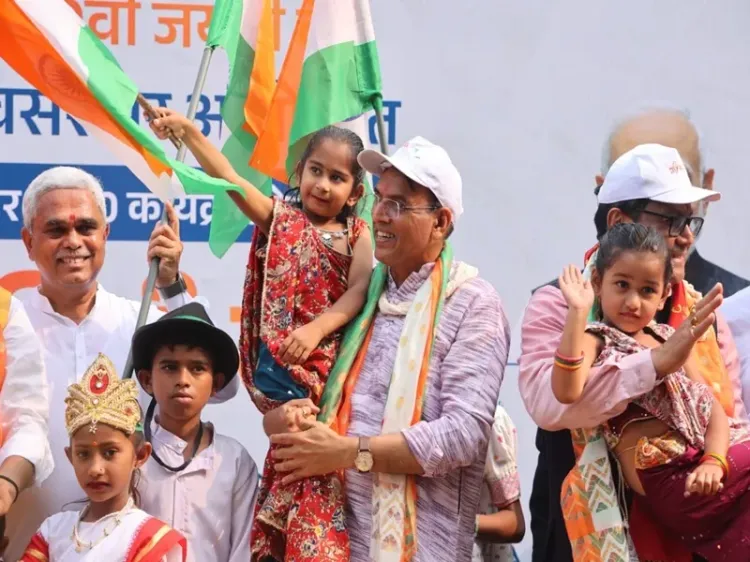
Synopsis
Key Takeaways
- Sardar Patel's principles are pivotal for India's development vision.
- Over 1,500 padyatras are being conducted nationwide.
- Patel's legacy includes the integration of 562 princely states.
- The youth's role in embracing self-reliance is crucial.
- The event highlights a message of national unity.
Ahmedabad, Nov 28 (NationPress) During a significant gathering in Sindhrot celebrating the Sardar@150 National Unity Padyatra, Union Minister Mansukh Mandaviya emphasized that the tenets of Sardar Vallabhbhai Patel continue to be essential as India aims to achieve its ambitions for a fully developed nation by the 100th anniversary of its Independence.
In his address at the "Sardar Gatha," he stated that the padyatra conveys a message of unity, self-reliance, and an optimistic vision for India—principles that today's youth should adopt to realize Prime Minister Narendra Modi's dream of a self-sufficient, developed India.
Mandaviya, who oversees the Youth Affairs, Sports, Labour, and Employment ministries, highlighted that over 1,500 one-day padyatras are taking place across 750 districts in India.
These initiatives commemorate Patel’s legacy, his contributions to the freedom struggle, and his pivotal role in shaping the vision of “Ek Bharat, Shreshtha Bharat.”
Recalling Patel as the “Architect of a United India,” he contrasted Patel’s achievement of uniting 562 princely states with Germany’s Bismarck, who unified only eight states, describing Patel's accomplishment as unparalleled in history. He asserted that realizing the nation's 2047 developmental objectives necessitates a return to these foundational principles.
Mandaviya revisited Patel’s leadership during the Kheda and Bardoli Satyagrahas, where he united farmers facing drought and resisted exploitative British taxation, fostering dignity and self-respect.
These endeavors earned him the title of “Sardar.”
As the mayor of Ahmedabad, Patel also pioneered India’s first town-planning initiative and transformed Victoria Garden into Lokmanya Tilak Garden, inaugurated by Mahatma Gandhi. Citing Patel's foresight, the minister recalled key actions like the integration of Junagadh through the Arzi Hukumat, the Hyderabad Police Action, and Patel's rapid intervention in Radhanpur to prevent the Nawab from joining Pakistan.
These instances, he noted, showcase Patel's decisiveness, promptness, and unwavering dedication to national unity.
He also highlighted Patel's humility and discipline: even during imprisonment, Patel adhered to rules, creatively preparing meals by filtering out gravel from coarse food and inspiring fellow inmates to remain devoted to the nation.
Dr. Mandaviya noted that despite 15 of 17 provincial committees endorsing Patel for Prime Minister post-Independence, he graciously stepped aside for Jawaharlal Nehru, honoring Mahatma Gandhi's wishes.
Speaking to the young padyatris, he mentioned that the 150-km march from Karamsad to Ekta Nagar entered Vadodara district on its third day, attracting participants from all over India.
More than half a million youth participated in My Bharat’s online quiz on Sardar Patel, with 150 outstanding participants chosen, including 50 present at the event.
The padyatra is receiving extensive media attention for its message of unity and self-sufficiency. Mandaviya added that while Sardar Patel united India, Prime Minister Modi is working to fortify and fully develop the nation; now, it is the responsibility of the youth to draw inspiration from Patel’s legacy and dedicate themselves to national service.
Earlier, MLA Chaitanyasinh Zala spoke on Patel’s crucial role in the integration of princely states. The event also honored outstanding students, ex-servicemen, and citizens committed to social service, alongside administering a Swadeshi pledge.
Union Minister of State Ajay Tamta, MP Jasubhai Rathwa, and numerous local leaders and villagers were present in considerable numbers.

